Published Apr 16, 2020
Peter David's Best Star Trek Novels
From Imzadi to Sulu, we're looking at the best Star Trek novels from author Peter David.
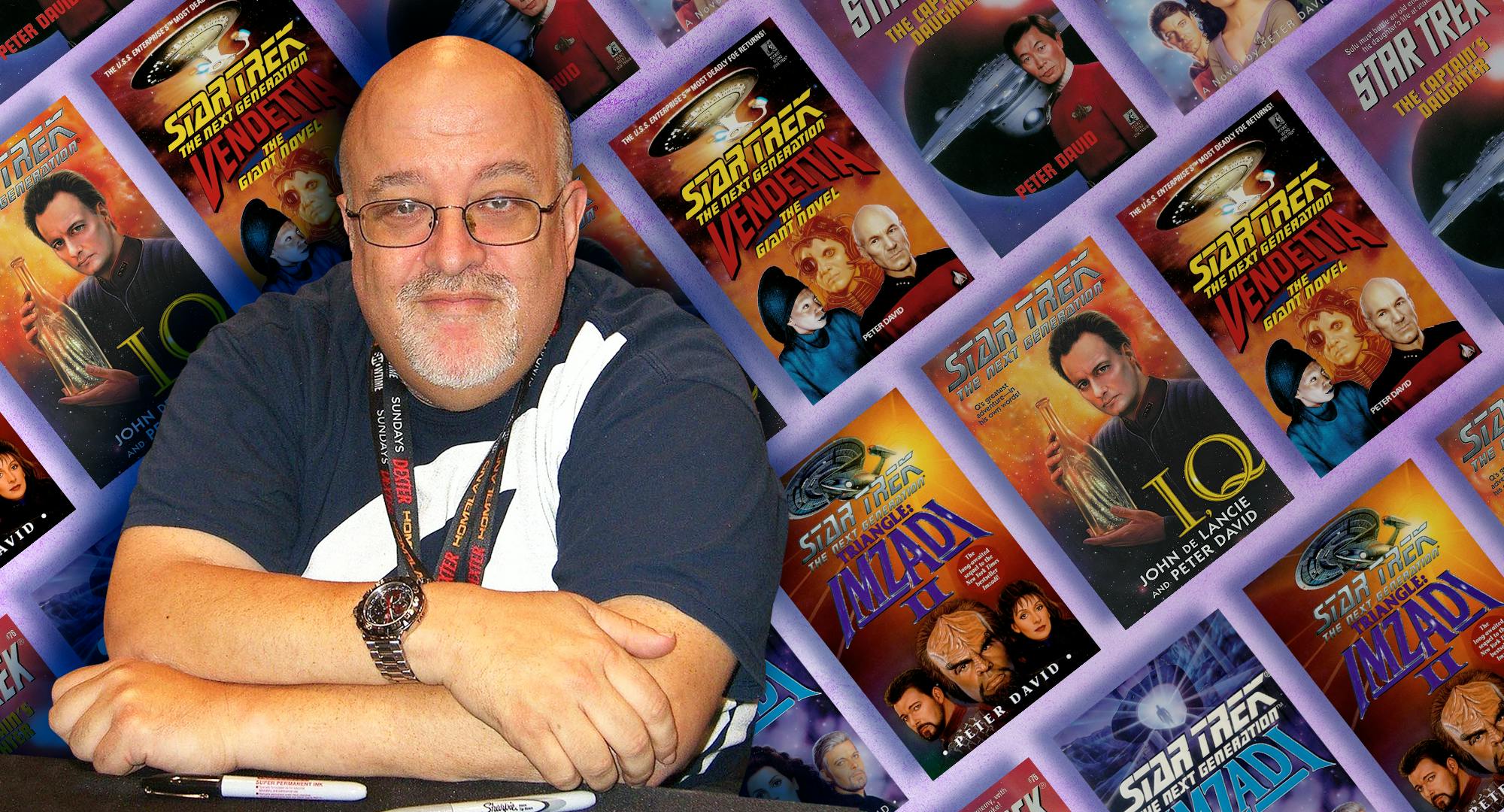
StarTrek.com
Let’s face it, there’s a lot of Star Trek-related content in the world, but I’m sure that many die-hard fans have experienced this same excruciating moment: the moment when they’ve watched every series and movie.
What do you do next? Do you listen to a Star Trek podcast? Do you watch a behind-the-scenes documentary? And what do you do once you’ve consumed all of those? What’s left?
For a long time, I viewed the Star Trek novels as being a little too nerdy. And, to be completely honest, I really don’t know why I gave them that stigma. I’m a nerd! How could something be too nerdy? These books were made for people like me.
If there’s one thing that’s true, however, it’s that I love Star Trek. And I wanted more! So, I decided to take the leap; I made the decision to read a Star Trek novel.
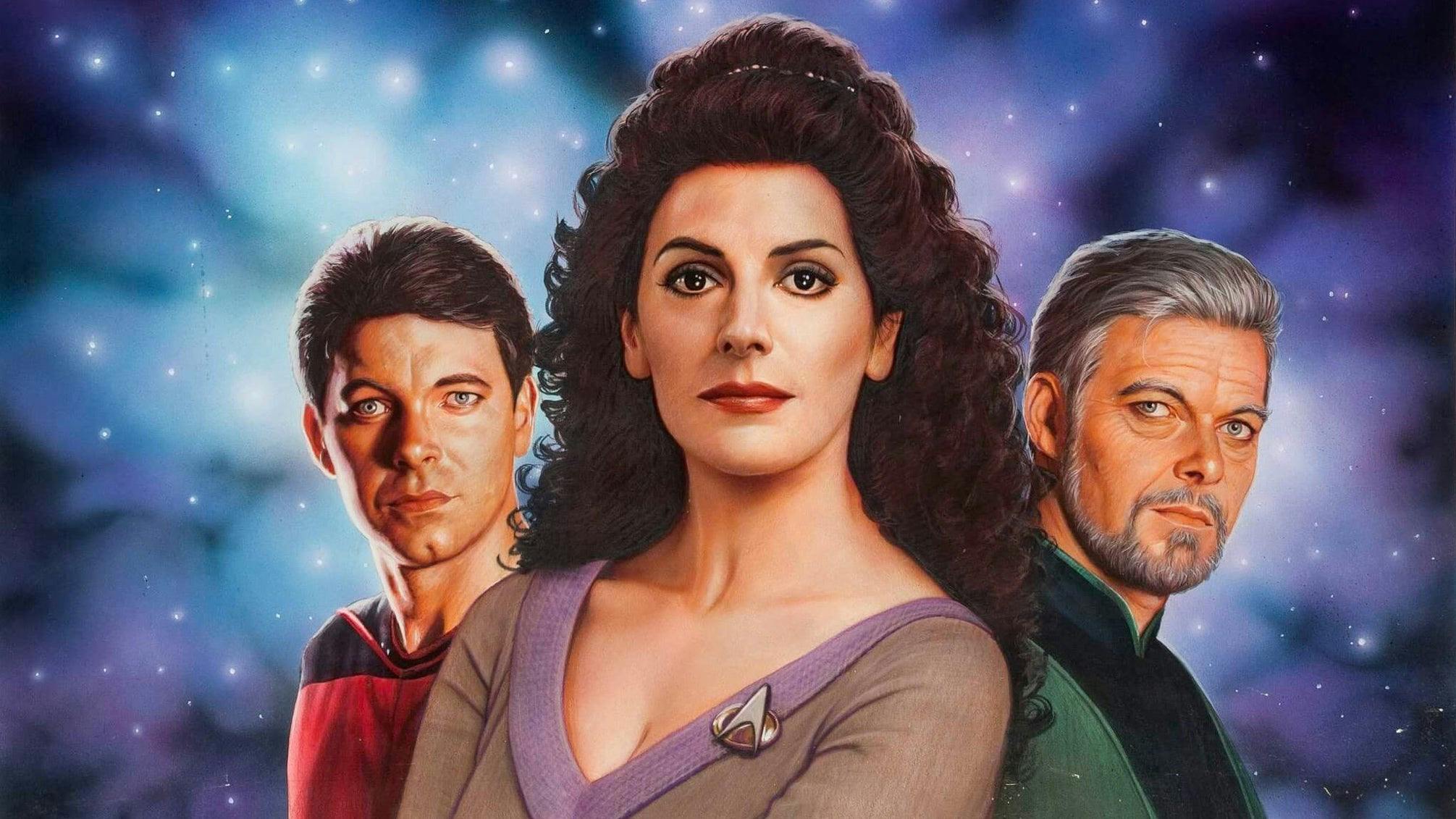
StarTrek.com
For me, what made Star Trek special was the combination of good stories, great actors, and memorable directing. It was the stories, written for the screen by people like Gene Rodenberry, D.C. Fontana, Brannon Braga, and Rick Berman that I loved. Could these books really stand up to their live-action counterparts? Like a true skeptic, I became an internet sleuth and scoured the web for the best Star Trek novels ever written. If I was going to read one, I thought, I wanted to start out with the crème-de-la-crème.
And that’s when I noticed a trend. One name kept appearing over-and-over in my searches: Peter David.
The first Star Trek novel I ever read was Peter David’s Imzadi. Many say that it’s the best Star Trek novel ever written, and I have to agree. Truthfully, I think it’s an absolute tragedy that it was never adapted into an episode or movie.
It’s been a few years since I took the plunge and I’ve read a ton of Star Trek novels in the interim, but I keep coming back to the work of Peter David time-and-time again. It’s fast-paced, well-crafted, and humorous, but it’s not just Star Trek escapism; David often digs below the surface to explore themes of grief, jealousy, and existential despair. Like the greatest Star Trek episodes, David's work strikes the perfect balance between the forward momentum of the story and the idea/moral he's trying to convey.
And that’s why I want to highlight what I think are Peter David’s best Star Trek novels. So, if you’ve never read a Star Trek book before, or even if it’s been a while, here’s a list that’s guaranteed to deliver.
Imzadi (1992) and Triangle: Imzadi II (1998)
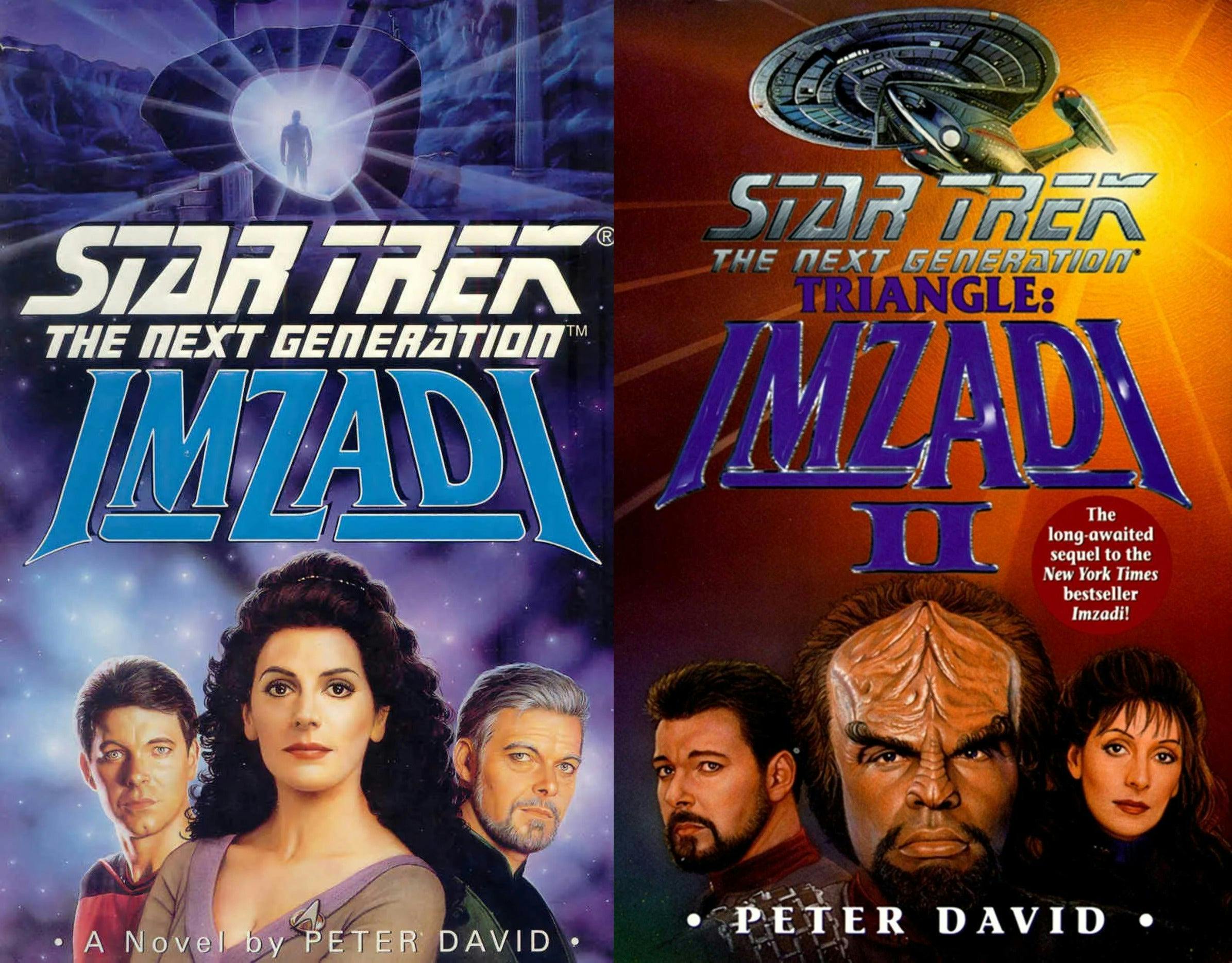
StarTrek.com
In the TNG series premiere, “Encounter at Farpoint,” Troi mentally whispers, “Imzadi,” when she lays eyes on Riker, and you know immediately that they shared a special kind of chemistry in the past. Throughout the television series we’re witness to their on-again, off-again relationship, but we never really got a true, honest-to-goodness love story between the two.
In Imzadi, David lifts the veil on their tumultuous past, spinning a tale of time travel, adventure, death, and love. I don’t want to go into too much detail, because the less you know the better. Just trust me, if you read only one Star Trek novel in your life, let it be Imzadi. You won’t be disappointed.
In the sequel, Triangle: Imzadi II, David adds Worf to the mix and things are further complicated. While it’s not as good as its predecessor, it’s still a solid read that adds further depth to their characters and backstory.
The Captain’s Daughter (1995)
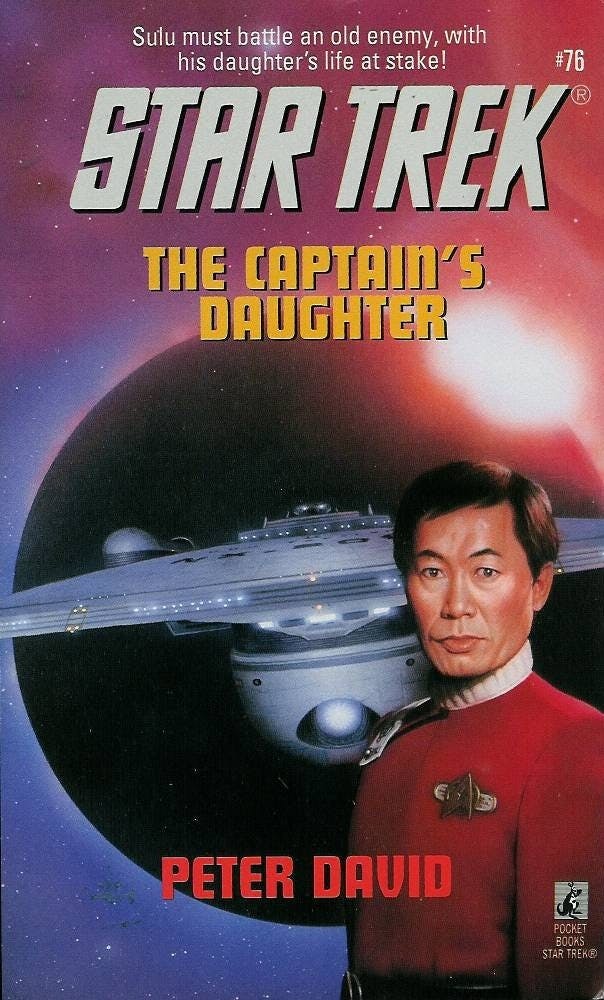
StarTrek.com
In 1991’s Star Trek VI: The Undiscovered Country, George Takei was finally given a much-deserved promotion to Captain Sulu of the USS Excelsior. Throughout the following decades, Takei championed the idea of giving Sulu his own television series, but it never came to pass. If you want a glimpse at what a possible series may have looked like, however, then look no further than The Captain’s Daughter.
When Sulu’s daughter, Demora, suddenly attacks her superior officer, the officer is forced to kill her in self-defense. A grief-stricken Sulu is determined to discover the truth behind the circumstances of his daughter’s peculiar death. After traveling to the planet where Demora died, he’s confronted by an old enemy who plans on spoiling Sulu’s reputation and ending his life.
We didn’t get much time to learn about Sulu’s personal life throughout The Original Series. Who is this guy? What makes him tick? What drink would I buy him at a bar? The Captain’s Daughter is like getting to know a long-lost friend.
Vendetta (1991)
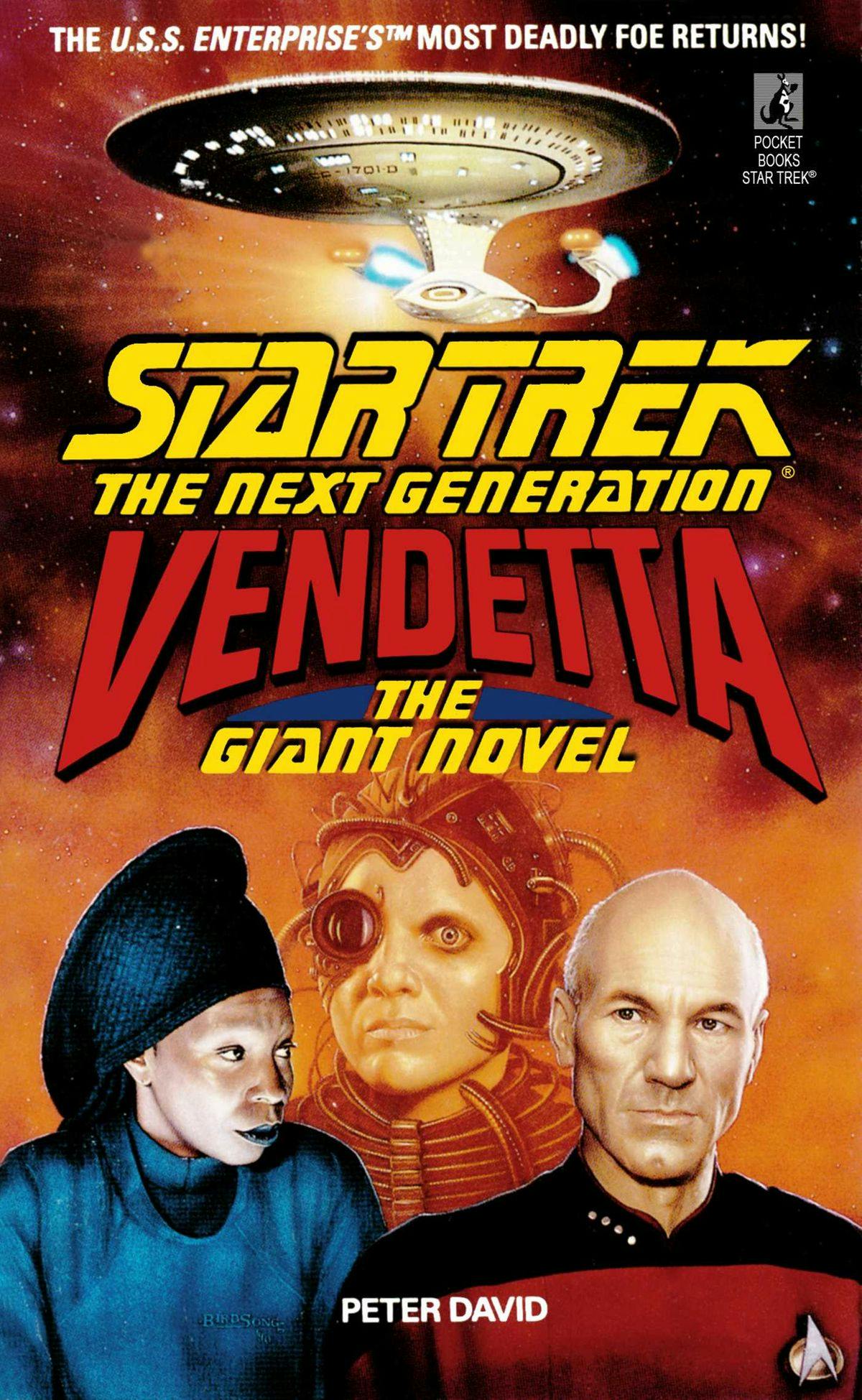
StarTrek.com
This novel serves as a sequel to the TOS episode “The Doomsday Machine” and the TNG two-parter “The Best of Both Worlds.” Unlike most other Star Trek writers, David often cross-pollinates elements from different series into one story. For instance, he’s not afraid to use the time portal from the TOS episode “The City on the Edge of Forever” to tell a story surrounding the unrequited love between Riker and Troi in Imzadi. (I know, I know; I’ll stop talking about Imzadi now.)
After answering a distress call from a planet under attack by the Borg, the crew of the Enterprise meets the sole survivor of an alien race that the Borg obliterated, Delcara. And, just like the novel’s title, Delcara has a vendetta against the Borg that must be settled. When the crew learns about the devastating consequences associated with her plan, however, they must do anything in their power to stop her.
If you’re a fan of the Borg — and really who isn’t? — I suggest giving Vendetta a shot.
I, Q (1999) co-written with John de Lancie
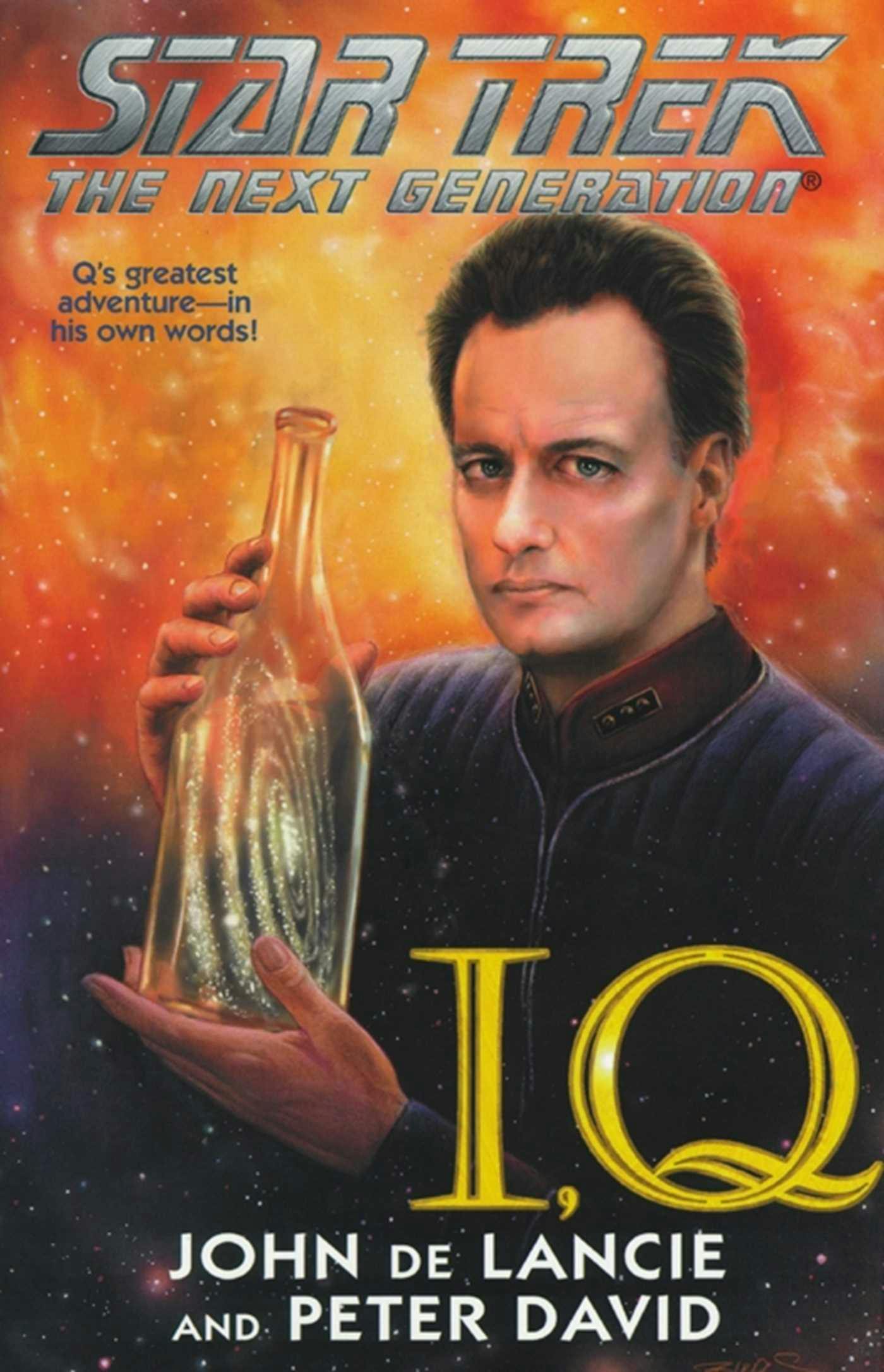
StarTrek.com
When Q is involved, you know things are going to be high stakes, and in I, Q the stakes are as high as they get. In order to save the lives of his wife and child, and to ultimately avoid the end of the multiverse, Q must join forces with Picard and Data. We all know how much Q likes to ask for help, and so, yeah... it goes about as well as you’d expect.
The greatest achievement of I, Q is the language. Told mostly in first person, I, Q nails Q’s speaking mannerisms as portrayed by John de Lancie. It’s an absolute pleasure to read Q’s eloquent and overly verbose language. And I just love the fact that de Lancie played a hand in writing the novel; he’s the only TNG cast member to write a book based on the character they portrayed.
If you’re not familiar with Peter David, these five books are a good jumping off point, but he’s also written for Marvel and DC Comics as well as co-creating the Star Trek: New Frontier series and co-authoring James Doohan’s autobiography, Beam Me Up, Scotty. But that’s just scratching the surface; the guy is a monster at the keyboard and has an extensive back catalogue of work that’s well-worth checking out.
Things You Need to Know About Star Trek: The Next Generation
Anthony Darnell (he/him) is a writer for Phantastiqa and a fan of horror, science fiction, and cult media. Find him on Twitter @darnell_one.
